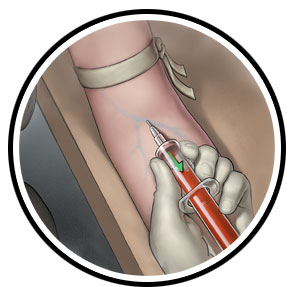What you should know
Risks for transmission
- Hepatitis B may be transmitted by having oral, vaginal or anal sex with an infected partner
- Through exposure to infected blood or blood products, or shared needles
- Highest risk groups include injection drug users, people with many sexual partners, incarcerated or institutionalized individuals, healthcare workers, people living with HIV or hepatitis C, or those infected with other STIs
- Occasionally from contact with shared household items such as toothbrushes or razors
- During childbirth (transmission from mother to infant)
Symptoms
- In 50 to 70% of people there are no outward signs of infection
- Up to eight weeks after exposure to the virus, some people experience flu-like symptoms including tiredness, nausea and vomiting, decreased appetite, a rash, joint pain, yellowing of the eyes and skin (in rare cases)
Prevention
- All provinces have either an infant or school-based hepatitis B vaccination program
- Infants born to affected mothers receive both hepatitis B immune globulin and the hepatitis B vaccine shortly after birth to prevent hepatitis B infection
- Harm reduction strategies can be implemented, such as clean needle exchange programs
- Sexual partners and those living in the same household as people with hepatitis B should be advised to be vaccinated to prevent infections
Testing
- Testing is performed by blood work

Treatment
- There is no cure for hepatitis B.
- If an individual has been exposed to hepatitis B, an injection of antibodies may be given (up to 7 days after a needlestick injury and up to 14 days after sexual contact), followed by the hepatitis B vaccine to help prevent infection.
- Most individuals recover from hepatitis B infection fully within about six months.
- Individuals who are acutely infected with hepatitis B should abstain from sexual activity until their partner(s) have been screened and immunized.
- All sexual partners and people in your house need to be notified if you have a hepatitis B infection.
- Individuals with acute (non-chronic) infections usually do not need antiviral medications.
Complications
- Chronic hepatitis B can lead to severe liver damage including cirrhosis (scarring of the liver), liver cancer, and a very complicated type blood vessel disease affecting the liver, stomach, intestines, and pancreas.
- Individuals who develop chronic hepatitis B infection require liver function monitoring and may benefit from treatment with interferon or an anti-viral medication.

